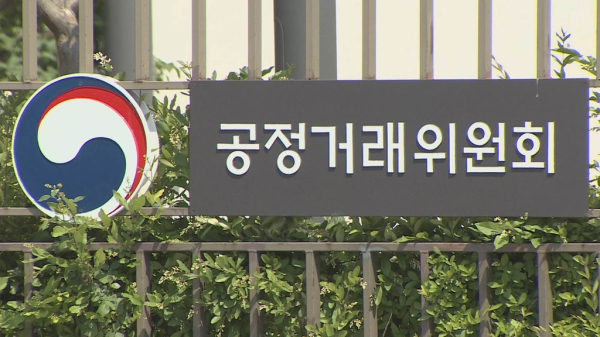 The Fair Trade Commission's sign in front of its office building in the Government Complex Sejong (BusinessKorea DB)
The Fair Trade Commission's sign in front of its office building in the Government Complex Sejong (BusinessKorea DB)The Fair Trade Commission (FTC) has concluded its investigation into alleged collusion in bidding by primary dealers (PD) for treasury bonds. The FTC is set to send an examination report containing its sanction opinions as early as next week or by the end of this month, according to sources familiar with the matter.
This investigation, which began with on-site probes in June, targeted 11 securities firms and seven banks, including major players like KB Securities, Samsung Securities, and KB Kookmin Bank. The investigation was part of a broader directive issued by President Yoon Suk Yeol at the beginning of last year to "take special measures to strengthen the competitive system in the oligopolistic financial and telecommunications industries." This directive led to a comprehensive probe into the banking sector under the frame of "LTV collusion."
The FTC's findings suggest that PDs exchanged bid information in advance to minimize losses during the treasury bond bidding process. A source from the bond industry confirmed, "I understand that the FTC has completed the examination report after legal review," adding, "We are discussing how to respond legally."
The timing of these sanctions is particularly critical, given the current economic turmoil. On Dec. 3, President Yoon announced martial law, which led to a deterioration in the external credit rating, a sharp rise in exchange rates, and a significant drop in stock prices. This has created a volatile financial environment, and the FTC's sanctions could further destabilize the bond market.
FTSE Russell, a subsidiary of the London Stock Exchange Group, announced last October that South Korean government bonds would be included in the World Government Bond Index (WGBI) after a one-year grace period starting in November next year. However, the uncertainty in the domestic economic and financial markets due to the martial law situation, coupled with the FTC's sanctions, could negatively impact foreign investors' access to government bonds and the actual inclusion in the WGBI.
The Ministry of Economy and Finance is reportedly considering countermeasures, such as additional designation of PDs among preliminary primary dealers (PPD). A government official stated, "If several securities firms receive strong sanctions, we have no choice but to revoke their PD qualifications, which could negatively impact the bond market." Due to the impact of the FTC's investigation, the Ministry's annual issuance strategy meetings with PDs will be conducted separately with each financial company this year, constraining usual communication among all PD firms.
A treasury bond dealer expressed frustration, saying, "We are doing this out of a sense of duty, not for profit, and there is no benefit from collusion, so why would we collude?" The industry argues that PDs are participating in bids while incurring losses, such as valuation losses occurring simultaneously with the purchase of treasury bonds. The Ministry of Economy and Finance has designated dedicated dealers, and PDs are contributing to the market by absorbing the impact of treasury bond issuance. However, there is criticism that the FTC is judging the legality of such typical decision-making structures with strict legal standards.
Some point out that the background of the FTC's intensive investigation is President Yoon's directive to strengthen competition in oligopolistic sectors. However, there are calls for a more measured approach. A financial industry source noted, "If PDs colluded, it is natural for them to be sanctioned," but added, "Considering the recent financial market situation, it seems better to adjust the timing."







Comments